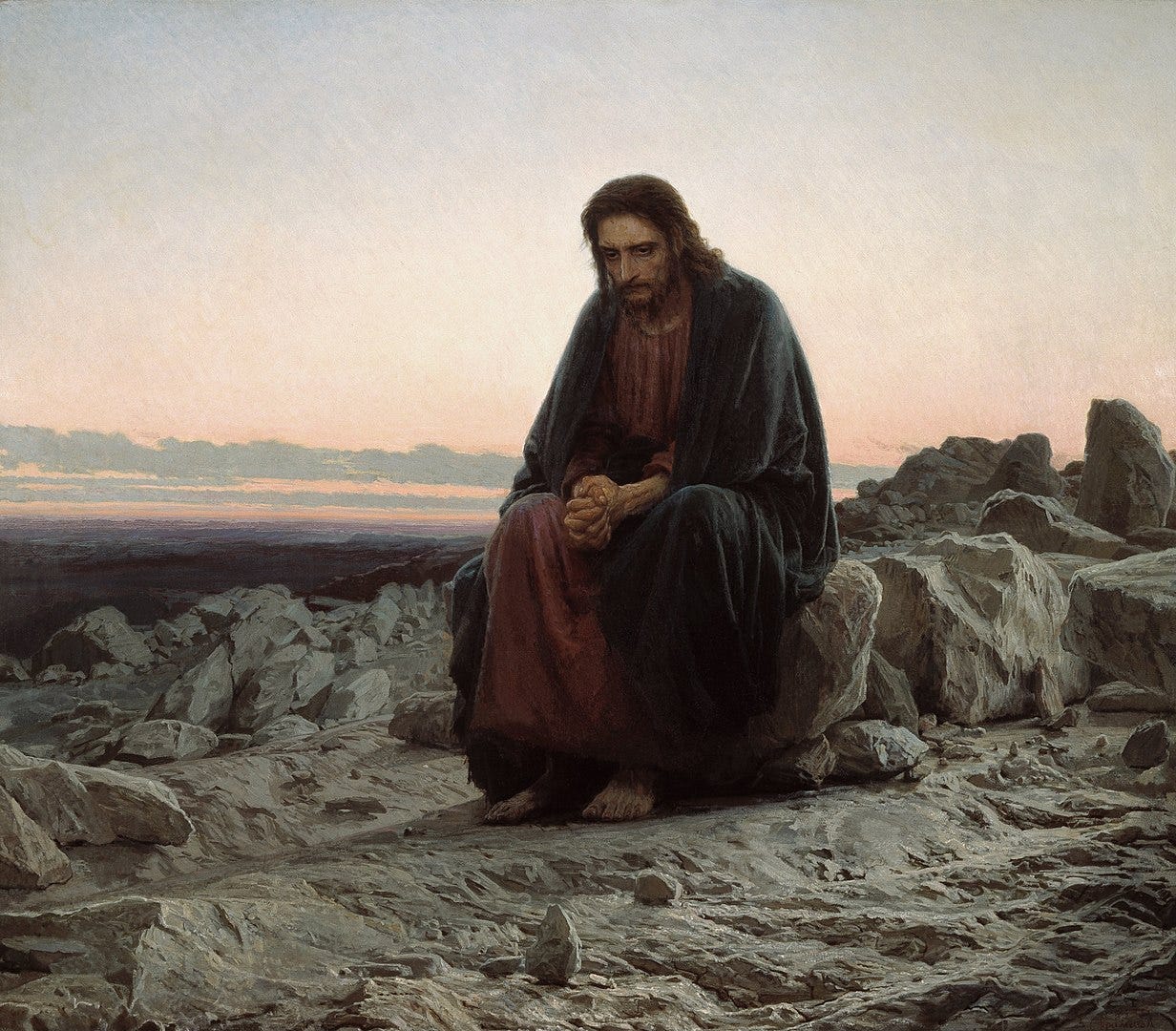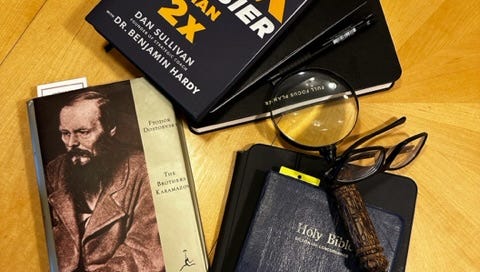“Leaders are readers,” it has been said.
Jeff Brown, the host of the Read To Lead Podcast was the first person to deeply emphasize this premise for me (thank you, Jeff).
Being a slow student, it took me a long time to fully realize that “the better the reading, the better the leading.”

Often it seems the best reading is also the most difficult. Because it is only through the effort of pushing against resistance that we build strength, a principle exemplified by the results of physical exercise.
The best reading is also exercise, and also produces good fruit only through effort, with us pushing against resistance.
And so, by reading books that are difficult, we build mental strength.
I am currently “enjoying” a slow and studious read of The Brothers Karamazov by Fyodor Dostoyevsky. It’s impossible to fully appreciate the allusive nature of this book without being aware of how often it contains echoes of other “difficult” works: Shakespeare, Nietzsche, and of course — the Bible.
I used the word “allusive” in the preceding pararaph on purpose — the Bible is more often alluded to than quoted directly in The Brothers Karamazov, and those without familiarity with the Biblical text (ahem… most people living in the world today) will miss the many epiphanies that Dostoyevsky has arranged for us.
And so, reading this novel led inevitably re-reading certain portions of the Bible.
I find myself curiously grateful for my Fundamentalist Evangelical upbringing in the Deep South of the USA — because the translation of the Bible which was drilled into my head as a youth was the venerable King James. I went rummaging in The Arcanum (my basement), and dug out my 1970 edition of the King James Bible, published by Thomas Nelson.
Why read the KJV? Because it is the most poetic rendering of the Scripture, in my humble (but well-supported) opinion. Is this also more difficult reading? Yes. Very well then. Difficulty be damned — bring on the poetry!
Now, because I was raised on the King James Version, it’s probably not quite as difficult for me as it is for those who were coddled on the Good News Bible, or the NIV, or (gulp) The Message.
The KJV feels like home to me. And as I approach it as literature (and not a mysterious alpha-numeric code book) I am so thankful I have been “at home” in its pages all my life.
I digress.
Dostoevsky has eluded (different word, different meaning — look them up) me for many years. I am embarrassed to admit that over the years I have attempted numerous readings of The Brothers as well as Crime and Punishment, and subsequently abandoned them before getting anywhere past the first chapter or two.
But this is The Year of Reading Greatly for me.
I am determined to fill in certain gaps in in my literary education. I am committed to spending less time on TikTok and more on reading the Great Books. I think of this is my list of books I would regret not having read before I die, and I am reading them in the order of the most regretfully neglected.
I can see this is going to take a while.
Not just the larger project of all the reading I have left to do, but simply the book with which I have started this quixotic quest. I just finished reading the chapter of The Brothers K entitled The Grand Inquisitor.
I am now on my second reading of the chapter. I was so stunned by the first reading that I felt I scarcely understood it.
So I slept (a solid night’s sleep, Praise God and All His Angels), awoke this morning, and read it again.
I still feel I have only scratched the surface. So my intention is to conduct reading number three of this single chapter with pen in hand. But that is tomorrow. I need more time to allow my subconscious to process what I have read.
Today’s reading time is at an end, and there is work for me to do, so I’ll conclude this transparently boastful (but joyful and, I hope, playful) essay with this thought:
By reading books that are difficult, and by thinking about them deeply in sustained ways, we build mental strength.
Leaders are readers, and the better the reading, the better the leading.
Today’s world could benefit from more of us reading difficult books.




OH! I'm on a similar path...committed to reading things I've put off. I, too, was raised by conservative Bible-believing folks. My dad was a preacher. I've had to work hard to find the "real Jesus" and not pay attention to some of the nonsense I grew up on. I personally love The New Living Translation (not the paraphrase) for just plain 'ol reading, but King James still feeds my poetic soul. Let's READ ON! And WRITE ON, and ROCK ON!
I think nothing matches the beauty found in the KJV. It’s how I remember psalms and the words in red. As for reading challenging works - I don’t know. Life is short.😆